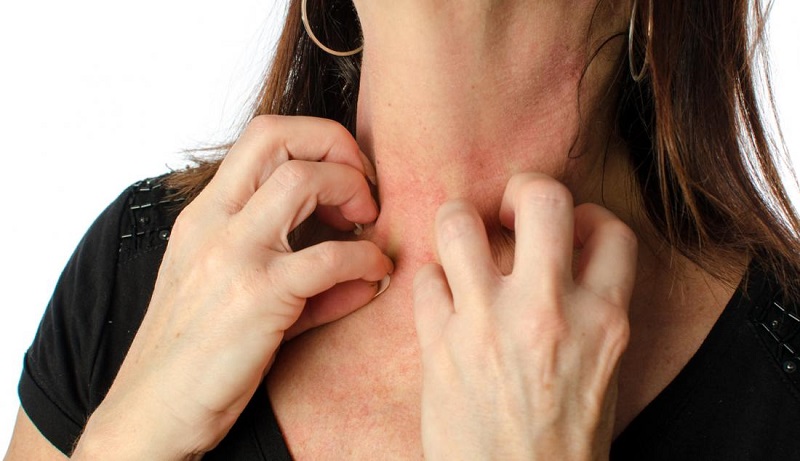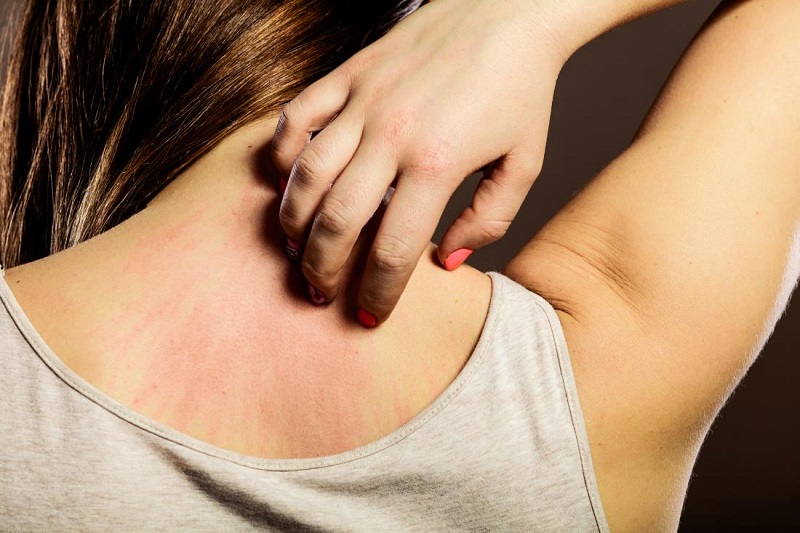Emotional allergy is a condition that appears when the body’s defense cells react to situations that generate stress and anxiety, leading to changes in different organs of the body, especially the skin. Therefore, the symptoms of this type of allergy are more visible on the skin, such as itching, redness, and the appearance of hives. However, shortness of breath and insomnia can arise.
The causes of emotional allergy are not well defined. But it can happen because stress and anxiety increase the production of certain substances, called catecholamines. And cause the release of the hormone cortisol to occur. And this causes an inflammatory reaction in the body.
The treatment for this type of allergy is very similar to the treatment for other types of allergies and is based on the use of anti-allergy medication. However, if the symptoms last for more than 15 days or get worse. It is recommended to undergo therapy with a psychologist and consult a dermatologist, who may prescribe other remedies such as corticosteroids and medications to reduce anxiety. Check out some remedies used to relieve anxiety.
Main symptoms
Emotional allergy caused by stress and anxiety has symptoms that vary from one person to another, depending on age, and the intensity of feelings. The way the person behaves in difficulties, and genetic predisposition, which can be:
- Itch;
- Redness of the skin;
- raised red spots known as hives;
- Shortness of breath;
Skin manifestations are the most common, as they have nerve endings that are directly linked to the feeling of stress and anxiety. Also, people who have other types of diseases such as asthma, rhinitis, and atopic dermatitis. And psoriasis may also experience worsening symptoms or skin lesions due to emotional distress. Learn more about How to identify psoriasis.
How is the treatment done?
Treatment for this type of allergy must be recommended by a dermatologist and usually consists of the use of anti-allergy medication to relieve itching and redness of the skin, however. If emotional allergy reactions last longer than two weeks and are very strong. The doctor may recommend the use of oral corticosteroids or corticosteroid ointments.
In addition, to assist in the treatment and generate better results, medication can be recommended to reduce anxiety and stress. As well as leisure activities and psychotherapy sessions. See more about what psychotherapy is and how it is done.
Possible causes
The causes of emotional allergy are not yet well defined. But what is known is that feelings of stress and anxiety cause changes in the body, leading to the release of substances, called catecholamines, responsible for the inflammatory reaction in the skin.
Stress and anxiety cause a reaction of the body’s defense cells to occur, leading to a hypersensitivity of the immune system, which can be noticed by changes in the skin and the worsening of the symptoms of other autoimmune diseases.
The release of the hormone cortisol is produced in times of stress. It can also affect the skin, through the inflammatory process it causes in the long term. Often, genetic predisposition can also generate emotional allergy symptoms.





